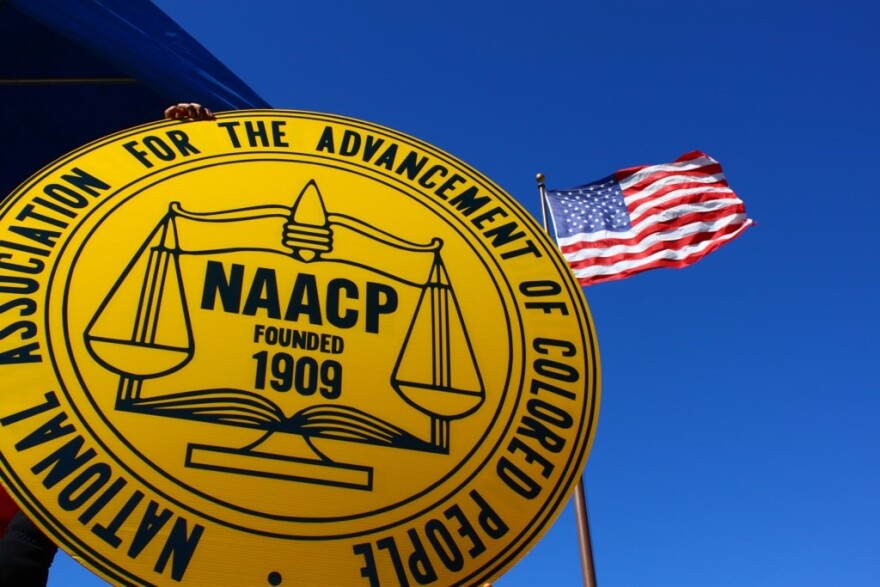With a larger turnout than organizers expected, an NAACP forum on community policing, equity and civility on Tuesday night had to move into the sanctuary at the Second Baptist Church downtown to accommodate more than 100 people.
The forum brought engaged members of the community together to talk about racial profiling, violence, economic opportunity and mental health. Local activists have been working for more than two years to create a community policing philosophy and increase equity for marginalized groups in Columbia.
The forum began with opening remarks by the Rev. Carlos Taylor of Friendship Baptist Church, Councilman Clyde Ruffin, Columbia NAACP President Mary Ratliff and city government officials, including Chief of Police Ken Burton.
Ratliff asked everyone to keep an open mind.
“There’s no reason why we can’t find a way to come together,” Ratliff said. “Columbia can be a model city.”
Also represented at the forum were Race Matters, Friends, Missouri United Methodist Church, CoMo for Progress, members of the Kiwanis Club and the Unitarian Universalist Church.
Much of the two-hour meeting was devoted to breakout sessions to address such issues as racial profiling and community policing, as well as civility and employment equity.
The breakout session that focused on community policing and racial profiling featured Burton. The session identified problems tied to profiling and ways to combat them.
The Columbia Police Department has come under fire from local activist groups over the past two years for racial profiling. An attorney general’s report earlier this year showed black drivers in Columbia were stopped at a rate 3.9 times higher than white drivers in 2016.
People in the session, including the Rev. Karl Thomas, a pastor at Second Missionary Baptist Church in Mexico, Missouri, shared their frustration with the ongoing problem.
“What I am feeling is fatigue,” Thomas said.
Burton said he didn’t think the data goes far enough, and it’s hard to conclude that racial profiling occurs in the police department.
Several people in the session quickly responded to Burton’s remarks, saying “racial profliing exists.”
During another breakout session, one on community engagement, Steven Calloway, president of the Minority Men’s Network, asked everyone what groups they were representing.
“I’m going to be real honest here, there are some people here I’ve never seen at an engagement, at a community event,” Calloway said. “In terms of groups, I think we’re well represented here.”
Trish Woolbright, opportunity gardens manager at Columbia Center for Urban Agriculture, said that their annual Harvest Hootenanny saw more diversity at their events after they changed their advertising and activities to appeal to a wider community.
“It was beautiful,” she said. “Everybody is really isolated right now. I’ve never lived in a town like that.”
The Columbia City Council passed a resolution in February to work on conducting “a community engagement process for policing.”
On Monday, a city plan to work with a consultant to convene a public conversation about law enforcement issues was stalled when the council decided not to solicit any proposals.
That decision came after the Heart of Missouri United Way withdrew a plan it submitted to the city earlier this summer. Residents criticized the plan at a July 17 council meeting, saying it excluded key stakeholders from marginalized communities.
The council also decided to wait for the outcome of the Tuesday night NAACP forum to move forward on any action.
As the small group forum ended, Calloway summed it up: “Community engagement is not an end but a means to an end.”
Another community forum hosted by NAACP will held in late September.
Supervising editor is Tyler Wornell: news@columbiamissourian.com, 882-7884.

